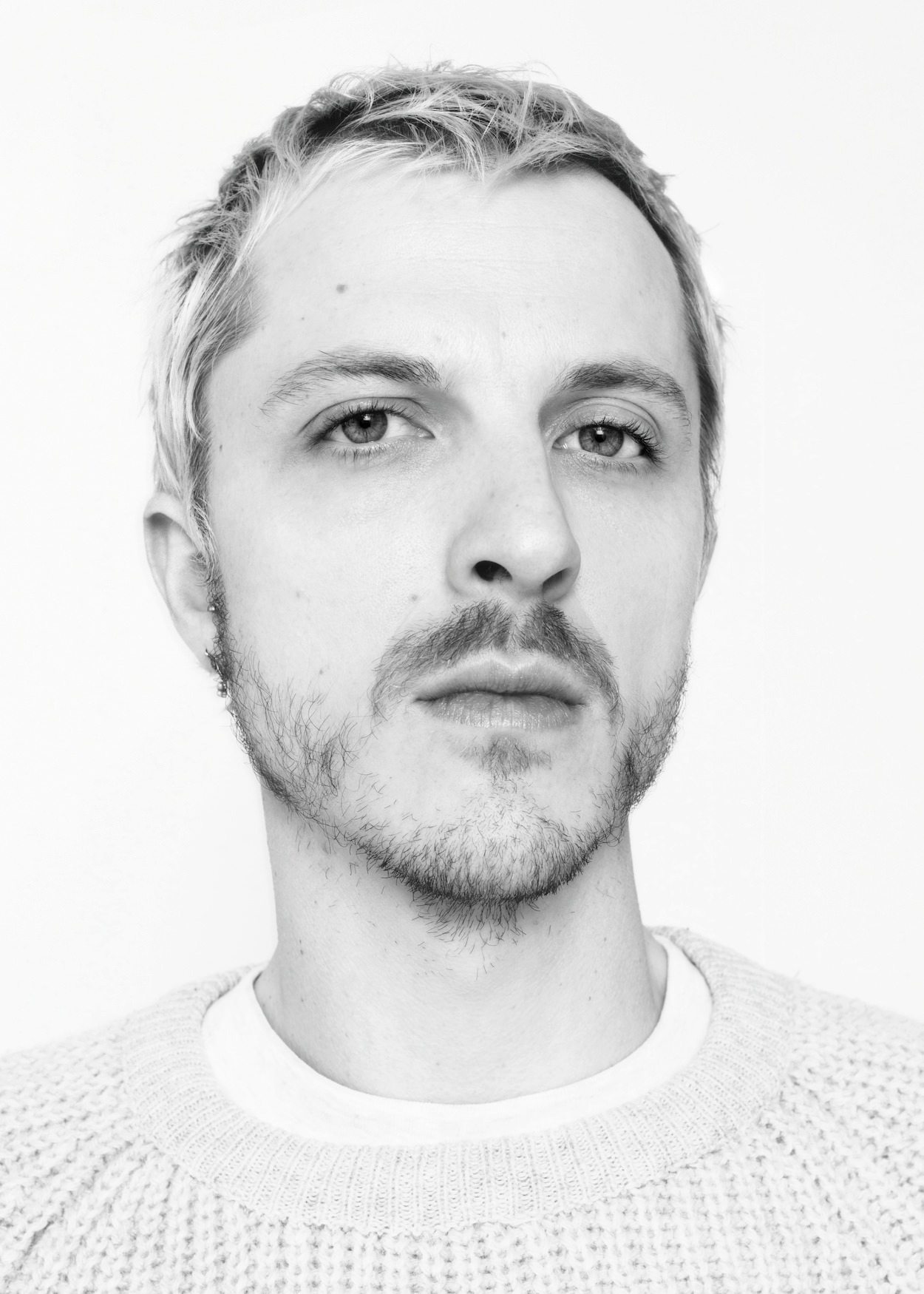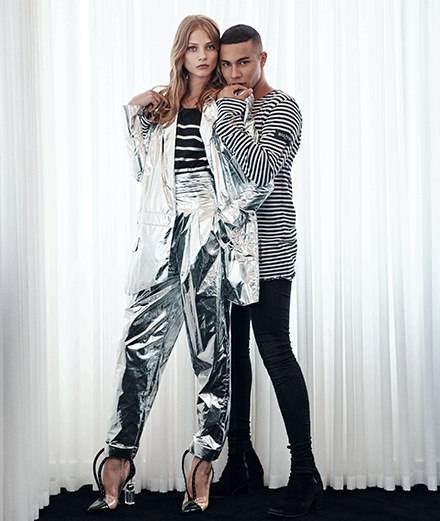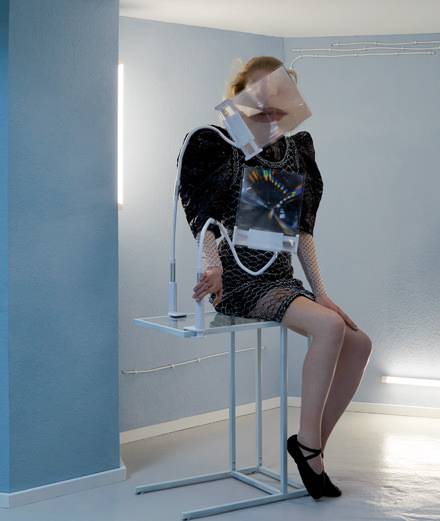Eventhough he's already part of the fashion designers to follow, Glenn Martens hasn't lost anything from the modesty that's always added to his charm, nor from his disarming candour. The young Y/Project designer resembles the enthusiastic thirty-something generation of people to which he belongs: less interested in success and more in freedom, open to all influences regardless of the codes. Since taking over the label in September 2013, Glenn Martens has managed to stamp his mark and even to emancipate from his former style, especially these two last seasons. Grasping the classical streetwear elements (bombers, jeans) as well as tailoring, he twists them in order to deliver a translation firmly contemporary and postmodern. The Flemish loves multiplying references indeed. At the men fashion show he presented January 20th in Paris, the gothic allusions along with Fleming painting hints he's always admired and inspirations from the 90s were omnipresent – cowboy attitude models mixed with black romanced silhouettes. On that day we were in between an aesthetically polished vampire movie (The Hunger by Tony Scott) and a 70s Berlin backroom. The energy was intense, coming from a vivid underground life. All proposals were strong messages bearers and had a never-say-die attitude. The two meters long jeans ended in pile at the models' feet. Oversized and destructured bombers opened with multiple zippers or were maintained by strips. A tad S&M, very bondage, so 90s, Glenn Martens' collection could leave no one indifferent.
Y/Project fall winter 2016 fashion show by Glenn Martens
Numéro: How come these last two years 90s references boosted in the fashion world, and why are they so ubiquitous in your shows?
Glenn Martens: What I offered in 2012 was already very 80 and 90s influenced. However the trend hadn't been yet established. It has today as a new generation of fashion designers has risen and become relevant. Naturally it refers to the period that it witnessed and which helped it grow. There's a lot of nostalgia to it. But there's also a better reason for it: the 90s were marked by an ugly aesthetic, rather trashy, eclectic and playful. For instance, when you're watching a TCL music video, it's quite difficult to find anything beautiful. I'm always attracted to what I loathe, anything that hurts a little, that's a bit complicated – in fashion and in love – fascinates me. It turns into something interesting right away and is also more enjoyable to mould. Besides it's a period which, unlike the 60s and 70s, cannot be summed up by one outfit. It's an inexhaustible source of ideas and disparate references. This eclecticism suits Y/Project perfectly, I'll even go as far as to say it's part of its DNA.
The collection that you've presented for Paris' fashion week gave room and space to bondage eroticism: tight belts enclosing the model's bodies, chaps and zippers, as if to invite them to get undressed.
This is due to mere coincidence. The pressure trousers and the use of belts were about perpetuating an important concept for Y/Project. The idea was to let the cloth evolve, mutate. The parts have to be able to adapt, by opening out, or by being adjusted with one or several belts for example. Volumes are equally perfected with this in mind. They are adaptable. So that a woman will be able to wear them as well as a man. By adjusting a belt to a large blazer, the piece of clothing turns into something a lot more feminine.
One of the particularities of Y/Project is that a woman can also wear any masculine outfit created. Does the question of transgender – which is quite a popular one these days – interest you?
I had also designed a few feminine pieces for the men fashion show. Rather sexy outfits that implied nudity more than it was shown, which was managed by playing with slits and creases. As far as mixing up genders is concerned, it developed itself very naturally. When we started women collections, we were only two in the studio and couldn't design four complete collections – two for men and two for women – a year. The idea to mix the pieces up became obvious very quickly. And it worked. It is rather common for people from our generation to steal different pieces of clothing in our boyfriend or girlfriend's dressing room. When Y/Project was created by Yohan Serfaty [deceased in 2013], masculine pieces were super fit and slim, so much that women wore them as well as men. It's always been a part of the label's history.
How did you handle Yohan Serfaty's heritage when you arrived in 2003?
I took over a brand in mourning. Yohan had a fascinating personnality and the label had a tight circle of insiders whom I didn't want to disappoint. I carried out a smooth transition while trying to keep strong elements like working with leather, or a certain idea of elegance. It's only been a year since I've allowed myself to truly experiment. It's evolving naturally. A new community is starting to take interest. Again, eclecticism is essential. We can be supported by a Rick Owens fan as well as by my 90 year old granddad, or even by my dad who's a judge.
You are passionate about architecture. Does it still exercise a major influence over you today?
I've always admired medieval and gothic architecture. I grew up in Bruges and it deeply imbued me. I still consider a piece of garment as a constructed element, especially as far as volume is concerned. My way of extending sleeves and trousers comes from this fascination for cathedrals' heights, how they seem to prolong towards the sky. Bruges is as equally classical and austere as it is a touristic capital with its french fries stands. This dichoctomy suits me and corresponds to the kind of fashion I try to defend. Classical tailoring goes side by side with sportswear: both are carefully crafted.














